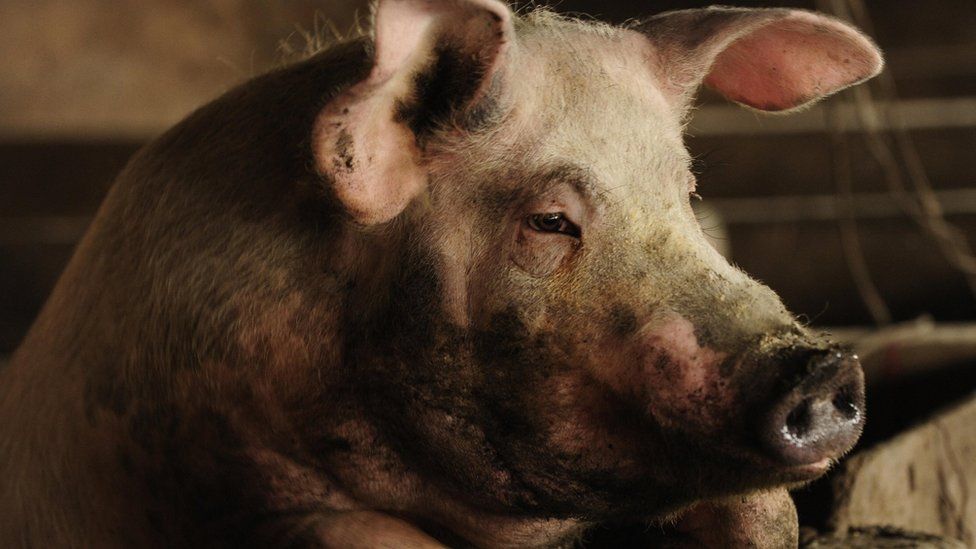Farmers urged to cut antibiotic use
- Published

Farmers need to dramatically cut the amount of antibiotics used in agriculture, because of the threat to human health, a report says.
Some infections are becoming almost impossible to treat, because of the excessive use of antibiotics.
And more than half of those used around the world are used in animals, often to make them grow more quickly.
The Review on Antimicrobial Resistance called for new targets on the amount of antibiotics used.
The great threat of excessive antibiotics use in agriculture was highlighted in China last month.
Scientists warned the world was on the cusp of the "post-antibiotic era" after discovering bacteria resistant to the antibiotic colistin - the medication used when all others have failed.
It appeared to develop in farm animals before also being detected in hospital patients.
Excess
In some cases, antibiotics are used in agriculture to treat infections - but most are used prophylactically in healthy animals to prevent infection or, controversially, as a way of boosting weight gain.
Using antibiotics as growth promoters was banned in the EU in 2006.
Such uses are more common in intensive farming conditions.
Based on current rates, the global consumption of antibiotics is expected to increase by 67% by 2030.
In the US alone, every year, 3,400 tonnes of antibiotics are used on patients, while 8,900 tonnes are used on animals.
The economist who led the review, Jim O'Neill, said such figures were simply "staggering" and 10 million people would die each year from drug-resistant infections by 2050.
He said a reasonable target for agricultural antibiotic use would be 50mg for every 1kg of livestock - a level already achieved by one of the world's biggest pork exporters, Denmark.
The UK uses just over 50mg/kg, the US uses nearly 200mg/kg, while Cyprus uses more than 400mg/kg.
What is a superbug?
Mr O'Neill told the BBC: "I'm sure many farmers will immediately think, 'Well, if we have to do this, that means the price goes up and I'll go out of business'.
"The Danish example shows that, after a very initial transition cost, actually over the long term prices weren't affected and Denmark has continued to maintain its market share."
Antibiotics are most useful in cramped dirty conditions where infections are easier to spread, so more spacious and hygienic living conditions are one way to reduce the need for antibiotics.
There are also calls for greater investment in research for vaccines and for tests that can diagnose specific infections.
The review also says countries should agree on a banned list of antibiotics that would never be used in animals, because of their importance to human health.
Dr Jianzhong Shen, from the China Agricultural University and one of the discoverers of colistin resistance, said: "All countries in the world should use the antibiotics in food animals more prudently and rationally.
"Now it is the time to act globally to restrict or prohibit the use of antibiotics in feeds for the purpose of growth promoter or disease preventing."
- Published8 December 2015
- Published19 November 2015
- Published19 November 2015
- Published7 January 2015